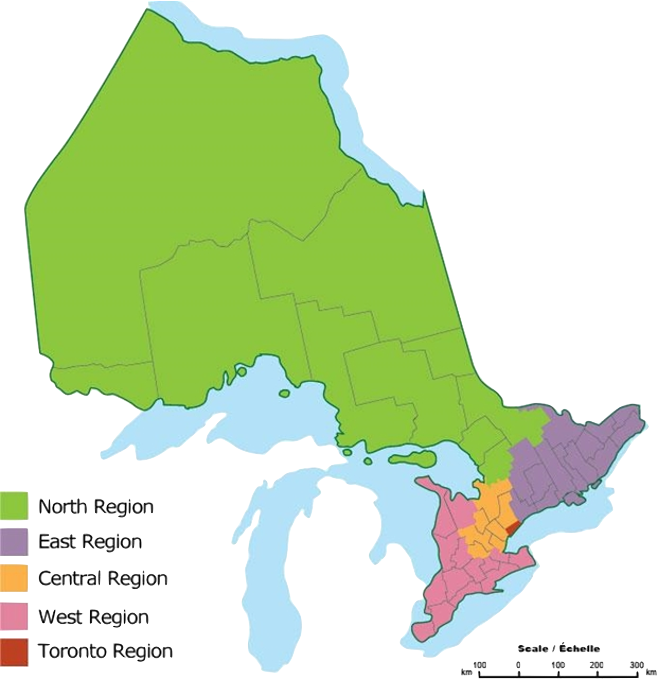Partnering for Change Realist Evaluation 2021-2023
In an effort to continue to transform the way in which rehabilitation services are delivered to children and youth in education settings, the research team is completing a study of Partnering for Change (P4C) which is funded by the Ontario Ministry of Children, Community and Social Services (MCCSS). The study is looking to determine how a school-based, tiered service occupational therapy service model, P4C, works in varied and unique contexts in Ontario to attain positive outcomes for children and families, therapists, educations, and the system.
The team has partnered with 10 schools in Ontario and 10 children’s treatment centres that provide occupational therapy services in those schools. Occupational therapists (OTs) and occupational therapy assistants (OTAs) are delivering P4C services in the 10 schools. This study will support the research team to generate best practice guidelines that will serve as a “road map” for government and organizations to deliver P4C effectively and efficiently across the province.
Research Question
The P4C research team is conducting a realist evaluation to determine: “In what circumstances and for whom does Partnering for Change work best, and how and why are positive outcomes achieved?”
Goals
We want to gain an understanding of how P4C works to be able to explain how, when, why and for whom P4C makes a positive impact in Ontario. The research team also wants to create clear guidelines, along with useful tools to show people how they can use P4C effectively. Lastly, we want to share what we find out through presentations, written articles, and meetings with people who are interested in knowing more.
Study Partners
The P4C research team is working with 10 Children’s Treatment Centres (CTCs) and 10 District School Boards (DSBs) representing varied regions across the province of Ontario.

Data Collection
The team is collecting and analysing data about the P4C service obtained through both quantitative and qualitative data which includes:
- Interviews with educators, OTs, OTAs, families, principals, and administrators from DSBs and CTCs
- Reflective journals from OTs and OTAs
- Surveys completed by families, educators, OTs and OTAs
- Activity logs completed by OTs and OTAs
- Administrative data about the wait times and waitlist for each study school
Iterative data analysis conducted over time will enable comparison of findings across cases to identify how P4C “works” in unique contextual circumstances. This will enable recommendations as to “what works for whom, under what circumstances, and how and why” for organizations wishing to implement P4C and best practice guidelines that will serve as a “road map” for government and organizations to deliver P4C effectively and efficiently across Ontario.

Iterative data analysis conducted over time will enable comparison of findings across cases to identify how P4C “works” in unique contextual circumstances. This will enable recommendations as to “what works for whom, under what circumstances, and how and why” for organizations wishing to implement P4C and best practice guidelines that will serve as a “road map” for government and organizations to deliver P4C effectively and efficiently across Ontario.
Campbell, W. (PI), VanderKaay, S., Bennett S, Camden, C., Kyte, C., Janus, M., Missiuna, C., Ng, S., Parekh, G., Phoenix, M., Specht, J., & Whitley, J. (2021-2023). Creating a road map for successful implementation and scale-up of Partnering for Change tiered services in Ontario. Grant, Ontario Ministry of Children, Community and Social Services, Research.
Realist Evaluation Team
- Dr. Wenonah Campbell
- Dr. Christiana Asantewaa Okyere
- Leah Dix
- Dr. Magdalena Janus
- Dr. Jennifer Kennedy
- Dr. Christiane Kyte
- Shannon Lane
- Dayle McCauley
- Dr. Cheryl Missiuna
- Dr. Stella Ng
- Dr. Michelle Phoenix
- Sandra Sahagian Whalen
- Dr. Jacqueline Specht
- Dr. Sarah Terreberry
- Dr. Sandra VanderKaay
- Dr. Jessica Whitley
